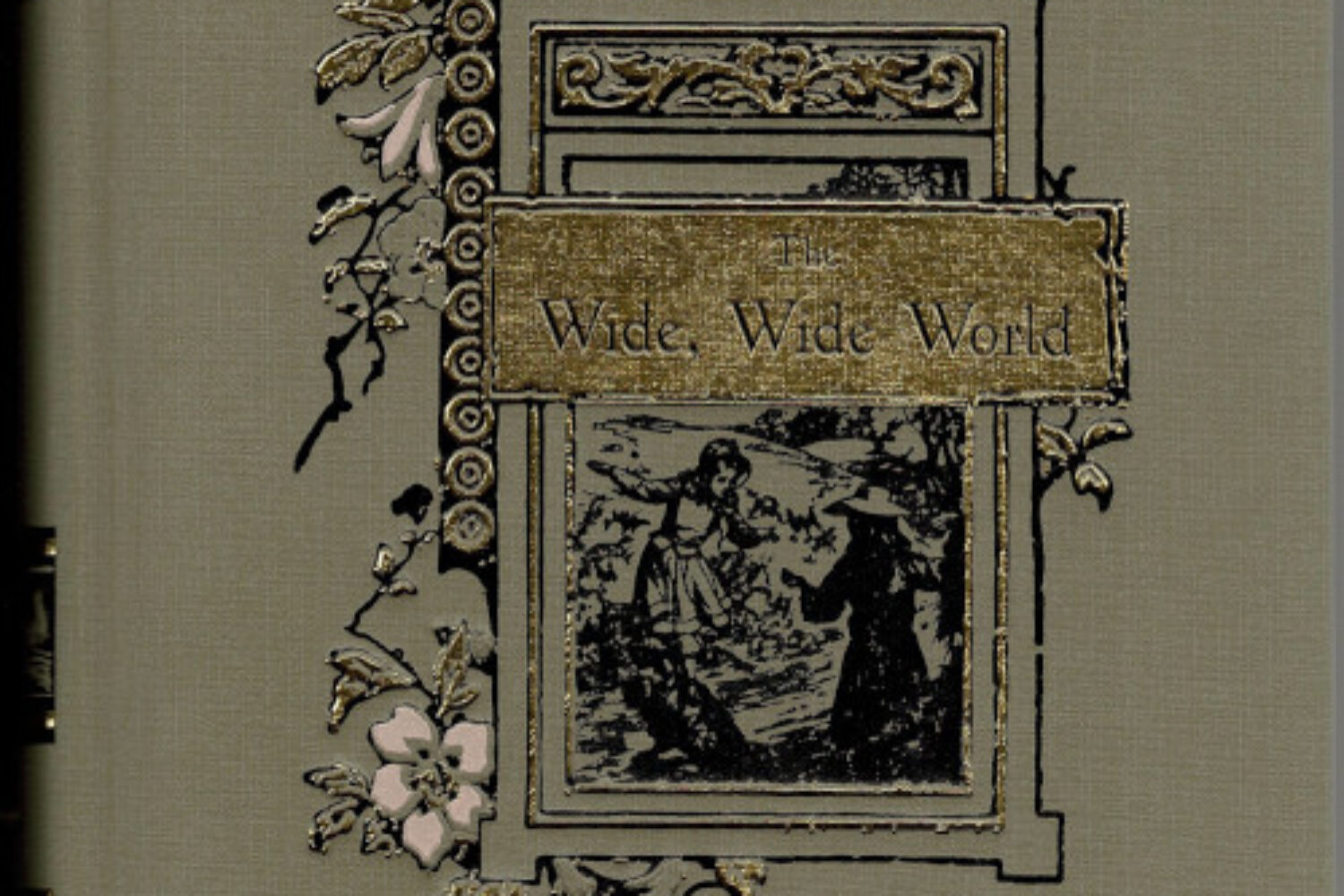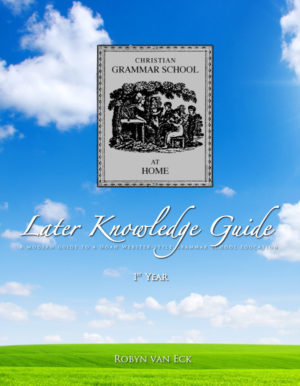Early on in the Christian classical homeschooling journey, I was a disappointed to think that there should be so few truly profitable books for my Christian children to read. But now, I find myself completely overwhelmed with the wealth of wonderful Christian books to read, and despair that I cannot possibly fit all of them into my children’s curriculum!
In public school, I learned that the classics were written by Hemingway, Hawthorne, Twain, Shakespeare, Faulkner. Oscar Wilde, Edgar Allen Poe, Walt Whitman. Heart of Darkness, The Catcher in the Rye, and 1984. Emily and Charlotte Brontë, L. M. Montgomery, Mary Shelley. I loved these books (well, I was never crazy about Faulkner). I kept most of them in my library, even years after finishing high school and college.
But when I began having children, I learned that the classics that had been selected for me to read in school were chosen not because of the excellence of their writing or their importance in shaping our culture and history, but because of their subtle and convincing arguments against God and his ways.
In hindsight, I remember these books casting a darkness in my heart, a confusion. They seemed lovely, in lots of ways (well, not Faulkner). But parts of the books made me feel uncomfortable. I didn’t know why; I never dreamed that what my teachers assigned me to learn could be anything less than profitable and good! But when I learned as an adult that these “classics” were all—one and all!—written by men and women who had apostatized from the faith, it all began to make sense.
At this point, I should tell you, that if you haven’t yet, you NEED to read Apostate, by Kevin Swanson. That book is a real eye-opener.
But was there anything good for children to read? My familiarity with Christian “literature” consisted of Love Comes Softly, Frank Peretti, and Ted Dekker. Not exactly on an equal literary footing with Shakespeare. Would my children be literary midgets if I would not teach them the “classics”?
I’ll be completely straight with you. For a time, when I did not realize the breadth and depth of Christian writing available to us, I figured that the Bible is the most beautiful, deep, excellent book there is, and that it’s plenty long, and has every different literary form, and that if that was all I taught my children from, then they would end up having a great literary education, just like that. So I come to the table thinking that, if there isn’t anything really great for Christians to read that’s honoring to God, then we’re better off not reading anything (outside of the Bible) than reading works that are dishonoring to God and designed to be stumbling blocks to our children.
And, along those lines, I don’t want to intimate that the Bible isn’t enough.
But, oh friends, we have such a wealth of excellent books written by men and women who loved God and wrote beautifully, that can be beneficial for our families!
First, I have to give a shout-out to Lamplighter Books. They republish old Christian books, mostly from the 18th and 19th centuries. Buy some of their big collections when they’re on sale, or ask grandma to get your children a membership in their monthly book club. These are wonderful books to read with your children. Please don’t let your children read the modern books at the local library. Fill your home with books written by people who loved the Lord and wrote to encourage young people to love Him, too!
Second, three of the greatest authors of literature, whose names even worldly people have not been able to erase from our cultural consciousness yet, are John Bunyan, John Milton, and C. S. Lewis. Their books are all still in print, all over the place. No hunting for buried treasure here. Find everything you can by them and read it.
Third, there are quite a few Christian publishers republishing great old books or publishing a rennaisance of new Christian excellence in writing! The aforementioned Lamplighter, plus Generations, Robinson Books, Answers in Genesis, and Master Books are probably my favorites, these days. If you start filling your home library with treasures from these publishers, you will soon have an abundance of excellent things for your children to read.
Fourth, as you read, pay attention to books mentioned in the books you’re reading. For example, I was checking out Elsie Dinsmore (which actually doesn’t make my “recommended” list, just fyi, but that’s beside the point), and in those books, Elsie reads certain books, like Jacob Abbott’s Makers of History series, or The Wide, Wide World, by Susan Warner. So I looked up those books, to see if they would be good additions to our library, too!
Finally, look at the small print in your history books. I’ll give you an example from a book we’re finishing in our homeschool this week, Adventures of Missionary Heroism. The book itself is wonderful, and I highly recommend it. But at the end of every chapter, the author lists the books he read when he was researching that particular tale. Those books often go on my reading list. Many times, they include the books written by the missionaries themselves, telling about their work, in their own words. History books always name their sources (at least real history books do; stay away from the ones that don’t!). In classical education, we prefer to read the original sources, rather than a textbook. This is where you find sources.
As I’ve read, I’ve discovered that in the 17th, 18th, and 19th centuries, English literature… How do I say this? From what I can tell, it seems like the very genre of English literature (and English-speakers hold the prize as the best cultural producers of that artform) was created by Christians, for the purpose of helping one another grow in faith! Once you start digging into our literary past, the field is filled with wonderful histories, biographies, novels, and poetry to read.
But do not forget that, even in a Christian culture, there are many apostates. So as you read, be careful to ask of every author, “What does the Bible say about that?” Be on your guard; the enemy saw the impact excellent books were making, and sent his minions, as wolves in sheep’s clothing, to write books to deceive.
I’ll be sharing specific titles with you as seems helpful, but for now, let me assure you, if you decide to keep the apostate authors out of your homeschool, you will not be bereft of excellent writings!!!
Have you read a Christian work that was both spiritually uplifting and artfully written? Tell us about it!
Thanks for dropping by; please keep us in prayer!



Paris Byrum
Do you have your book list that you have been keeping track of to share or purchase?? I only know of lamplighter and a few of the other publishers you mentioned, however I have no idea where to begin after that! A book list would be soooo helpful to start with as a launching pad!
Robyn Van Eck
Definitely! Each of the Later Knowledge Guides has assigned reading lists, focusing on Literature and History; and they also have "Free Reading" Lists, with lots of other books that are great for students at that reading level.
Reading plans for Mother’s Read Aloud time are also in the works.